Retail Lottery Landscape
Retail lottery, as the name suggests refers to the retail channel of selling Lottery tickets. It can be any brick-and-mortar setting where (printed) lottery tickets are sold. This setting can include portable self-service ticket dispensing machines, terminals in a store, special lottery kiosks, point-of-sale (POS) transactions at a register, and anything that isn’t online-only.
Although the equipment in a retail business may be connected to an online lottery database, it’s technically not an online lottery because the players still have to purchase tickets at a physical location, and this physical interaction is what makes it “retail”. Let’s explore this a bit more for better understanding.
Online vs. offline Lottery channels
Depending on the geography and corresponding local/national regulations, you may come across various lottery sales channels. However, lottery sales channels are typically divided into online and offline channels.
Online Lottery channels constitute a mobile application or an online website. This could mean an official lottery website or a dedicated mobile app. State or national lottery organizations often have dedicated apps for purchasing tickets, checking results, and managing customer accounts.
Offline/Retail Lottery channels can be any kind of brick-mortar setting in which there is usually selling of printed lottery tickets. Retail lottery can include lottery kiosks, POS(point of sale) transactions, and anything that is not based online.
It is to be noted that the retail/offline lottery channels are also driven through an online lottery system in the backend, but the distinction between online and offline is done on the basis of sales/purchase mode, which in this case is either online or at a physical location.
Read More: How to Play Powerball Lottery
Significance of Offline/Retail Lottery channels and shifting customer preference
Let’s start with a history lesson –
- The first ever officially recorded Lottery was called Loterie Royale, and was held in France from the 1500s to 1700s. It was of course, sold via Retail channel, and retail was the French Government. The purpose was to raise funds for government and war efforts.
- Then this innovative solution spread to surrounding countries & across the Atlantic. The next notable lottery was set in Great Britain followed by American Colonies. With the same purpose of raising funds for war, all of these lotteries were managed by the government & not an external agency.
- Not able to keep up with the increasing demands(for obvious reasons), the government contracted “agents and runners” who sold lotteries on their behalf.
- Due to extreme popularity and increasing demands(and corruption), the government was unable to keep a close check on lotteries and had to allow privatization. With this, a lot of money and competition came in, leading to enhanced customer experience.
- For a better reach to customers & in the market, private lottery operators looked towards technology(web and mobile apps), shifting away from retail channels. This still did not diminish the sales of retail channels, but increased the overall sales of lotteries because of better reach.
Nowadays, when we are getting more wary of technology, due to increasing online fraud, the paradigm is slowly shifting again, where customers feel uncomfortable with purely online transactions. To keep up with customer preferences, lottery operators are looking towards omnichannel, integrating online and offline channels seamlessly. The learning from this entire history lesson, customer preferences have shifted from,
Offline/Retail Channels > Online Channels > Omni channel
It may not seem at first glance that retail channels are still popular(even with an omnichannel approach), but the number says otherwise.
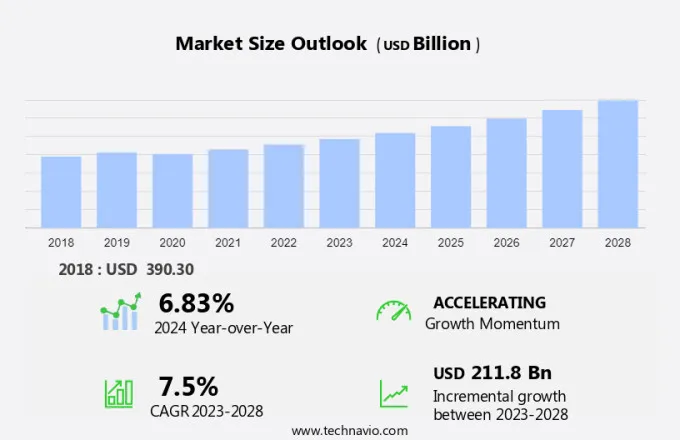
Source: https://www.technavio.com/report/lottery-market-industry-analysis
As per a report published for Lottery Market analysis, the offline segment/channels accounted for the largest share of the global market in 2021 and is expected to continue the same during the forecast period of 2024-28, owing to its global presence and high awareness among consumers. Factors supporting the growth of the market are the growing disposable income of people, which is aiding in increasing their spending on leisure activities, including lotteries, thus promoting the sales of lotteries from traditional ways.
Different kinds of Retail Lottery Channels
Now that we have established the significance of the retail channels, let’s explore the retail channels in detail. Retail Lottery channels can be broken down into different channels.
- Brick-and-Mortar Retail Locations: Retail location for selling/purchasing can be any retail location with sufficient customer footfall, for example,
- Convenience Stores: Often offer lottery tickets alongside other everyday items.
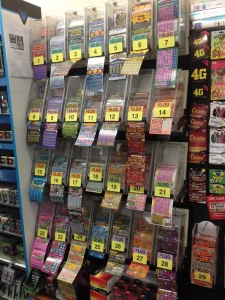
Lottery Retail Store
-
- Supermarkets: Larger grocery stores may have dedicated lottery ticket counters or kiosks.
- Gas Stations: Many gas stations with convenience stores sell lottery tickets.
- Pharmacies: Chain and independent pharmacies sometimes provide lottery tickets.
- Newsstands: Some newsstands, particularly in urban areas, offer lottery tickets.
- Tobacco Shops: Some tobacco retailers also sell lottery tickets.
- Specialized Lottery Retailers
- Lottery Shops: Unlike a convenience store or a supermarket, where a lottery is a secondary product, Lottery shops are stores dedicated to selling lottery tickets and related products.
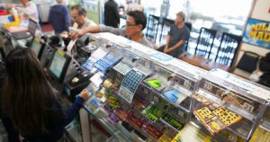
Specialized Lottery Store
- Automated and Self-Service Kiosks
- Self-Service Kiosks: These machines, often located in high-traffic retail areas, allow customers to purchase lottery tickets, check numbers, and sometimes even scan tickets for results.
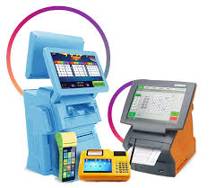
Lottery Kiosks
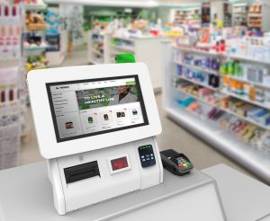
Self Service Kiosk at store
- Retail Partnerships and Promotions
- Specialty Stores: Occasionally, lotteries partner with specialty or retail stores for promotional events or special games.
- Charity Events: Lottery tickets might be sold during charity events or local fundraisers, often organized by non-profit organizations.
- Vending Machines
- Lottery Vending Machines: In some areas, vending machines specifically designed for selling lottery tickets are placed in various locations.
Innovation in Retail Lottery
When we use the word “traditional” to refer to the above-mentioned retail channels, it does not mean that they lack innovation. There have been notable innovations and advancements in retail lottery channels as well:
- Enhanced Self-Service Kiosks: Modern self-service kiosks at retail locations offer more than just ticket sales. They allow customers to,
- Check on the ticket status
- Print tickets
- Multilingual support
- Vending Machines: Provide advanced features like,
- Biometric verification for faster and more secure transactions
- Omni-Channel Experience: Integration of online and offline channels to provide a seamless customer experience, such as being able to purchase a ticket online and redeem or check it in-store. Building an omnichannel ecosystem involves using data to create strategic interactions with players at every touchpoint, both on- and offline.
- Contactless Payments: Contactless payment options for ticket purchases at retail locations, reducing the need for physical cash and speeding up transactions.
- Chatbots and AI Assistants: Providing 24/7 self-servicing customer support through AI-driven chatbots and virtual assistants to help with queries related to ticket purchases, account management, and more. These assistants enhance the self-service customer experience at POS, kiosks & vending machines.
- AR Features: Implementation of augmented reality for creating more immersive experiences for lottery customers, such as visualizing potential winnings or participating in virtual draw events.
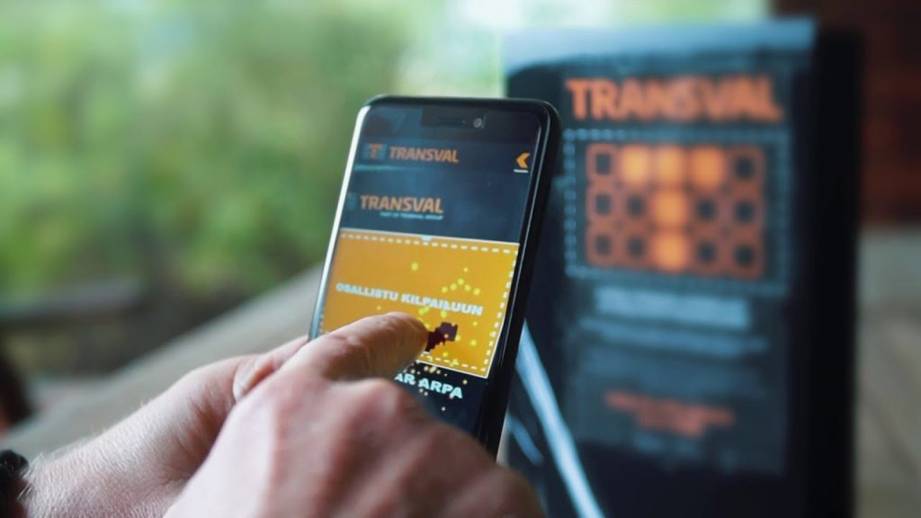
Augmented Reality Lottery ticket
Conclusion
Even with the advent of online customer experiences, retail Lottery channels still hold a significant position in driving lottery sales globally. Especially with omnichannel implementation encompassing both online and offline channels, the two(online and offline/retail) complement each other to offer the lottery customers a seamless experience. Consumer experiences are changing across the industry. Leveraging online technologies like augmented reality, mobile Apps, and loyalty based systems, retailers are creating more engaging and personalized customer experiences, increasing customer engagement and loyalty.

